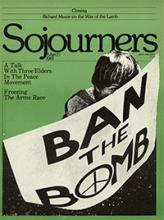[The kings] will make war on the Lamb, and the Lamb will conquer them, for he is Lord of Lords and King of Kings, and those with him are called and chosen and faithful. (Revelation 17:14)
The book of Revelation is a series of visions; visions which portray the forces of righteousness and unrighteousness clashing in history. It is not necessarily a blow-by-blow description of that sequence of events, but it does depict in various ways the kinds of struggles that take place in history. I find it helpful to read the book as a symphony which has many subthemes and excursions and detours, but which comes back repeatedly to a very basic theme: The victory of history belongs to Jesus Christ, no matter what forces attempt to confront his power.
The book of Revelation depicts history as a scenario in which superhuman powers are at work. This emphasis is, I think, a necessary corrective to the individualistic thinking we Christians often engage in as we reflect on the historical process.
It is nothing new to say that there are powers at work in history which are more than human powers. We see that already in the Garden as our first parents were encountered by the serpent. We learn throughout the Scriptures that the evil in the world is more than the sum total of human choices, even human evil choices; there are superhuman forces which present themselves to us in mindsets and attitudes. Rebellion is in the air. A perversity that is not so much our own invention as it is a presence which lures and diverts us both as individuals and as nations draws us in the direction of evil.
Paul said, "We wrestle not against flesh and blood but against principalities and powers." The theme is picked up in the hymn:
Read the Full Article

